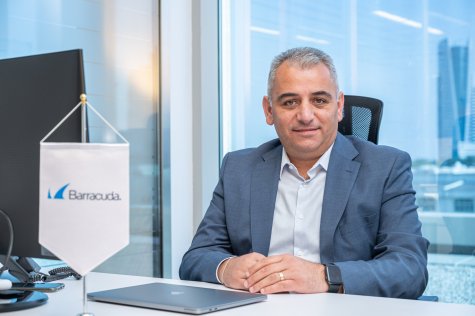
Toni El Inati, RVP Sales, META & CEE at Barracuda Networks explores how security infrastructure need not be overly complex despite the new paradigms of digital transformation, distributed mobile workforces and the adoption of cloud services.
Can you outline to our readers how your company offers cutting-edge technologies to help your customers deliver the ‘experience’ that their employees and end-users demand in the experience economy?
In a world dominated by digital interfaces and systems, the availability and security of these systems has an outsized impact on the ‘experience’ of customers and employees. Even the most well designed and slick applications have little value if they aren’t reliably accessible, or if they expose users to cyber threats.
These connected technology systems are increasingly complex – and the security infrastructure needed to protect them can quickly become complex too. This is where Barracuda fits in – we deliver innovative security products that are easy to deploy, manage, scale and use. Our comprehensive portfolio of advanced solutions features email protection, application protection, data protection, network protection and a SASE platform – wherever you need it, on premises, in the cloud, or both. We are continually innovating to deliver tomorrow’s security technology, today.
OpenAI and ChatGPT are all the rage, and these new AI integrations have been tipped to fundamentally reshape all major industries as we know them. What is your view on AI, are you excited by the new opportunities that it will present, or do you think more regulation is needed to control its impact on society?
Artificial Intelligence plays a pivotal role in driving progress and innovation. From algorithms that personalise our experiences to intricate neural networks powering virtual assistants AI is not just about technology, it revolutionises industries, enhances user interactions, and expands possibilities.
For users, AI brings together speed and customisation options, while for business it opens up opportunities for innovation, efficient operations, and a unique advantage, in a changing market.
When it comes to cyberthreats, AI allows attackers to strike faster, with better accuracy, and makes attacks more evasive and convincing. As attackers become more efficient, it is even more critical that businesses use AI-based threat detection to outsmart targeted attacks.
AI can be used in cybersecurity in many ways. For example, to enhance cybersecurity awareness training, reduce noise and complexity, support analysis, and to learn the unique communication patterns of an individual. This kind of insight already underpins technologies that protect against email threats such as spear phishing, business email compromise, lateral phishing and other targeted threats.
There has been a swathe of digital and cloud transformation projects in the Middle East over the last 3-5 years. However, many have struggled with the demands of cloud transformation, especially legacy-heavy players. What are the key processes that enterprises need to adopt to ensure a successful transformation journey?
Digital transformation, the distributed mobile workforce, the adoption of cloud services, and emerging edge computing platforms have changed how many organisations operate. Today’s users expect to have access to corporate apps from anywhere and from any device. These new paradigms have introduced new complexities and challenges.
Through our participation at GITEX, we intend to highlight how concepts such as Zero Trust and the utilisation of Cloud Application Protection and Secure Access Service Edge (SASE) solutions, can empower organisations to confidently embrace the cloud paradigm and grant their user secure access to applications no matter their location or device.
This supplement is titled Tech Vision, so with that in mind, what do you think the future holds for the IT and tech sector across the Middle East, what will be the key trends and technologies that will really champion change over the next ‘digital decade’?
AI will undeniably be one of the biggest trends we see unfold over the coming decade. In just the last year alone, we have seen major strides in the field – not just in the innovations being rolled out, but also in the familiarity and comfort that individuals have with this concept. Today, you would be hard pressed to find someone who hasn’t at least tinkered about with a tool such as ChatGPT or another AI-powered assistant. As this acceptance grows, and fears of humans being replaced by AI are placated, we will see AI start to shape regional economies. A recent report by PwC projects that the potential economic impact of AI in the Middle East could reach US$320 billion by 2030. In relative terms, it forecasts that the UAE will see the largest impact of close to 14% of 2030 GDP, while in absolute terms, the largest gains are expected to be in Saudi Arabia where AI is expected to contribute over US$135.2 billion to the economy, equivalent to 12.4% of GDP.





